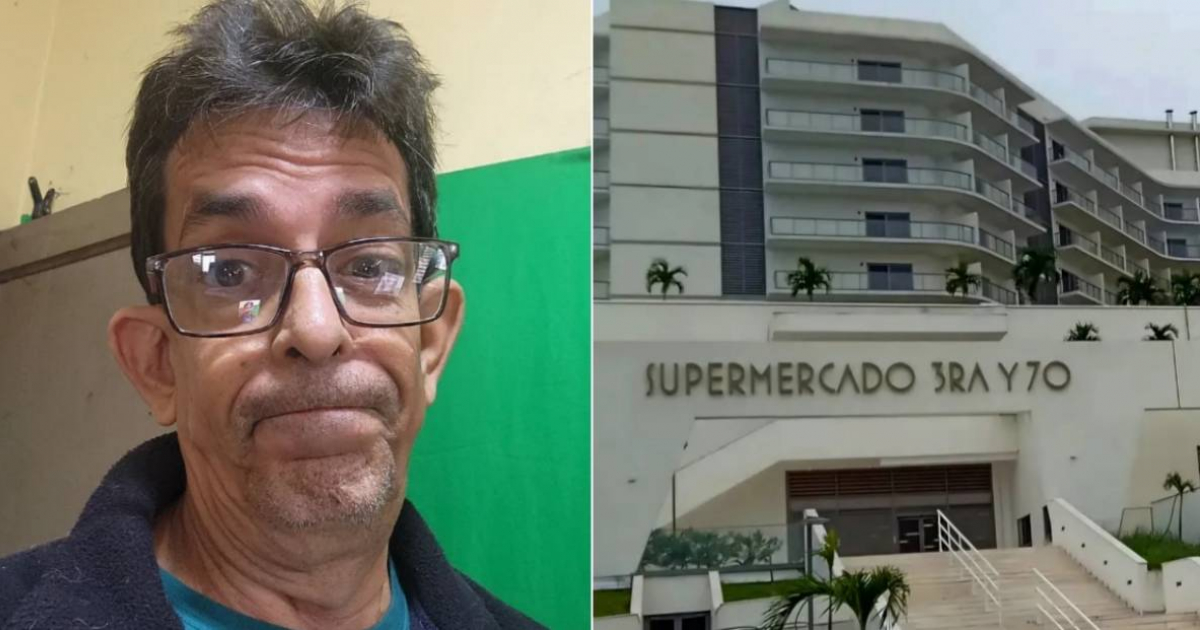Cuban comedian Ulises Toirac sparked a lively discussion on social media following the opening of a new supermarket at 3rd and 70th streets, which accepts payments exclusively in dollars. Located in the Gran Muthu Habana Hotel, owned by GAESA, this supermarket sits opposite the old 3rd and 70th Market, which now trades in Cuban Convertible Pesos (MLC) but suffers from chronic shortages.
Toirac did not hold back in condemning the increasing inequality and dollarization of the Cuban economy, describing it as "a slap in the face." The newly opened Havana supermarket operates solely with cash dollars or cards linked to foreign currency accounts and boasts a well-stocked inventory of both local and international products.
Exclusive Access and Economic Disparity
From cold cuts and meats to juices, oils, and confectionery, the supermarket offers a stark contrast to the scarce shelves of MLC stores. Toirac voiced his outrage over the economic exclusion this supermarket represents for most Cubans, stating, "The so-called blockade is relative. There is money for some and not for others," he wrote on Facebook, challenging the official explanation for the supply crisis.
The comedian also mocked the rationale behind Cuba's dollarization. "Dear celestial patriarchs, the dollars you magically convert into MLC aren't dollars? Where do you stash those dollars?" he quipped.
An Unreachable Price Tag
A video by La Kinkalla TV showcases shelves brimming with goods, an unusual sight for Cubans familiar with the typically barren MLC stores. The prices at the 3rd and 70th Supermarket are out of reach for most residents. For example, a 500-gram panettone costs 15.20 dollars, a figure far exceeding the average Cuban monthly salary in pesos.
Toirac was also critical of the notion that the new Havana supermarket targets travelers. "The idea that a tourist comes to Cuba to buy soap, rice, or toys is the most 'amusing' thing I've ever heard," he remarked.
Social Inequality and a Troubling Future
The dollar-only store epitomizes economic exclusion. Only those with access to foreign currency can shop there, deepening social inequalities on the island. Toirac highlighted this when he said, "The gap between the disenfranchised and the powerful continues to widen. These are not the dreams of those who died for an ideal."
Toirac warned of the inevitable consequences of government policies. "Families sending money via MLC will stop doing so. Say goodbye to that because it solves nothing for those living here. Those who can afford it will send cash dollars. The foreign currency trade will increase," he predicted.
He concluded with a powerful reflection: "This increasingly resembles less the dreams of Martí or anyone else. Acting in their names with this reality denies their purity and sacrifice for a better country." With the rise of dollar-exclusive markets and the lack of access to essential goods for most Cubans, critiques like Toirac's mirror the growing social discontent on the island.
Exploring the Impact of Dollarization in Cuba
Why is the new supermarket in Havana controversial?
The supermarket is controversial because it only accepts payments in dollars, excluding most Cubans who do not have access to foreign currency and highlighting economic inequalities.
What products are available at the 3rd and 70th Supermarket?
The supermarket offers a wide range of products, including cold cuts, meats, juices, oils, confectionery, and even appliances, featuring both local and international brands.
How do the prices at the supermarket compare to the average Cuban salary?
Prices at the supermarket are significantly higher than the average Cuban salary. For instance, a 500-gram panettone costs more than the typical monthly income in Cuban pesos.
